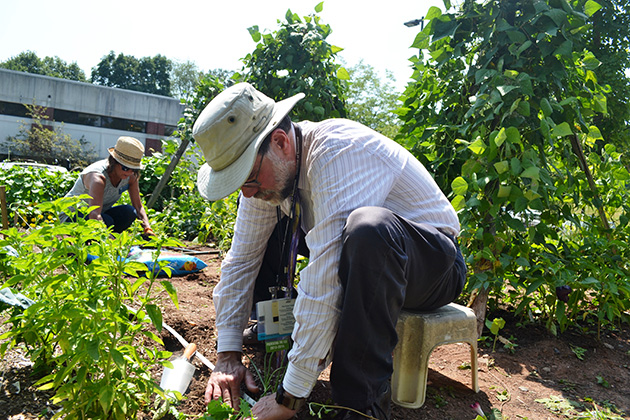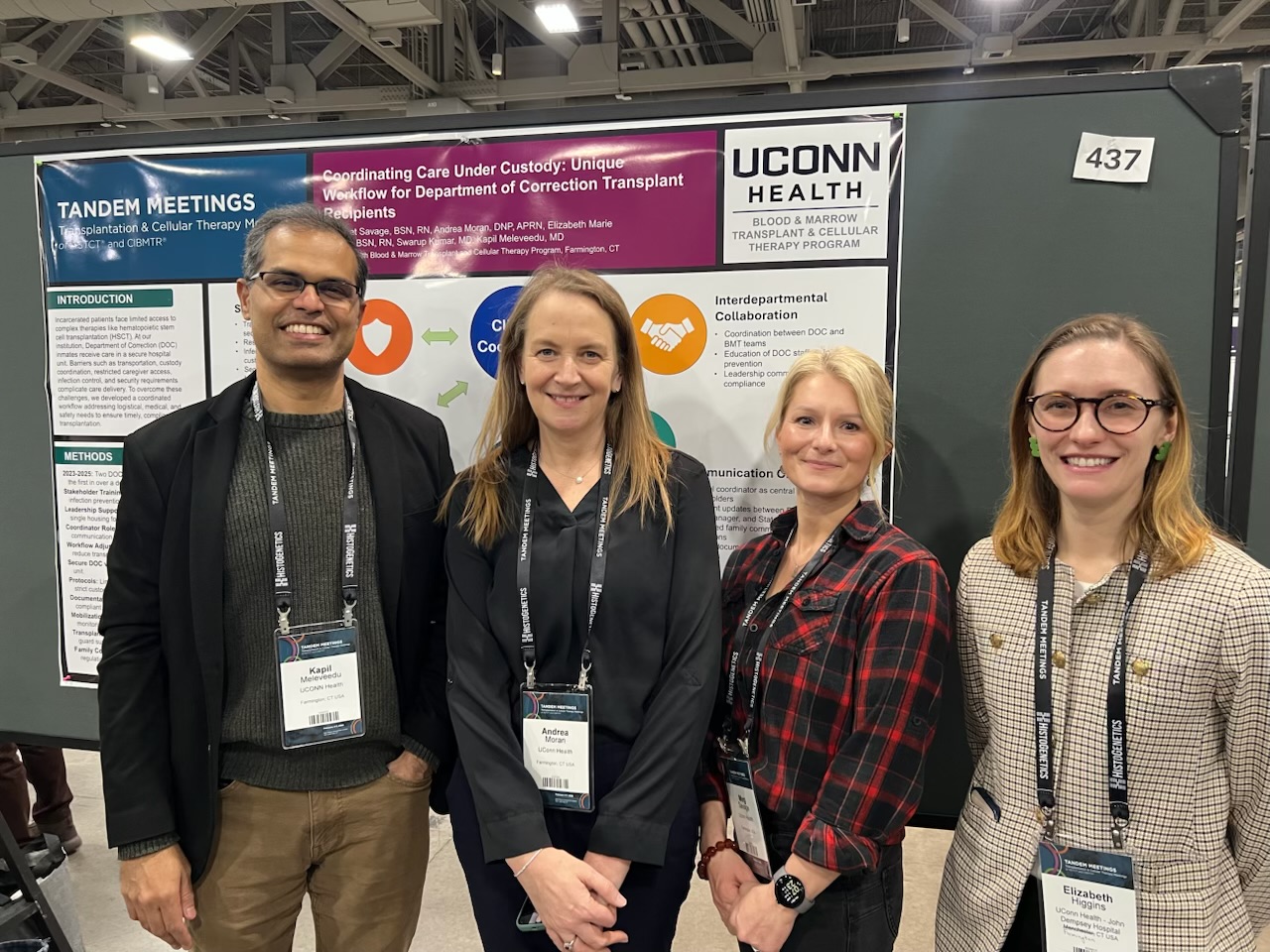
Patients at the Burgdorf/Bank of American Health Center, a community clinic for the underserved in Hartford’s North End, can get a side of fresh vegetables with their health care.
It’s possible because of a community garden planted on the Burgdorf grounds in 2011 that continues to thrive.
The Burgdorf, located at 131 Coventry St., is a collaboration between UConn Health and Saint Francis Hospital and Medical Center, staffed by UConn and Saint Francis clinicians as well as UConn medical, dental, and pharmacy students. The produce is provided to patients through the medicine and pediatric clinics, the Burgdorf’s emergency food bank, and through the Women, Infants, and Children program (WIC) at the Hartford Department of Health and Human Services.

“We’ve put roots down in the community, and we’ve been nurturing and strengthening those roots for four years now,” says Dr. Bruce Gould, associate dean for primary care at the UConn School of Medicine and medical director of the Burgdorf and Hartford DHHS. “It’s a metaphor for our presence here. We’re on the leading edge of community nutrition. What we have here is an opportunity to produce food for our patients and to teach them about healthy eating. It’s all part of primary care and community health.”
If healthy eating is a preventive medicine tool, communities like Hartford’s North End are at a disadvantage by being in a “food desert,” a term used to describe neighborhoods where access to healthy food choices is lacking. The expense of fresh and unprocessed foods tends to steer consumers toward cheaper processed foods, and local supermarkets are scarce compared to the suburbs.

“This garden helps me feed my family and other families in the neighborhood,” says local resident Robert Harris.
Saint Francis dietitian Jessica Sutton, who helps harvest and distribute the produce to patients, says the concept of fresh produce isn’t always familiar to a low-income population.
“Some people have never seen these vegetables,” Sutton says. “A lot of our patients don’t have yards or gardens, so to see them growing, it’s a learning experience. Fruits and vegetables are expensive, and our patients are more prone to buying junk food because it’s cheap. It’s nice to provide them with fresh produce that they normally couldn’t afford.”
Last year’s garden yielded about 350 pounds of produce. The garden’s caretakers expect to surpass that this year, perhaps tallying 500 pounds or more. They also have handed out potted tomato, eggplant, and pepper plants for patients to bring home and watch them grow.

Volunteers from the UConn Extension Master Gardener Program provide expertise and labor to keep the garden thriving. UConn undergraduates and medical, dental, and pharmacy students in the Urban Service Track also are pitching in, as well as participants in the UConn campus-community partnership Husky Sport.
“We can use this as a teaching space for the neighborhood,” says Sarah Bailey, the UConn Extension Master Gardener coordinator for Hartford County. “We’re planning to have tours, where folks can walk through the garden and learn more about vegetables.”
Gould says a majority of the produce comes by way of seedlings donated by Pickn’ Patch, a farm in Avon. The program has also received support from the Hartford Department of Health and Human Services, CIGNA, the Knox Park Foundation, the Hartford Food System, and Ecological Landscape Designs of West Hartford.
The Burgdorf was founded in 1970 as the outpatient service for what was then known as the UConn Health Center, which initially occupied the old McCook State Hospital on the corner of Coventry and Holcomb streets, a block away.
Follow UConn Health on Facebook, Twitter, and YouTube.


